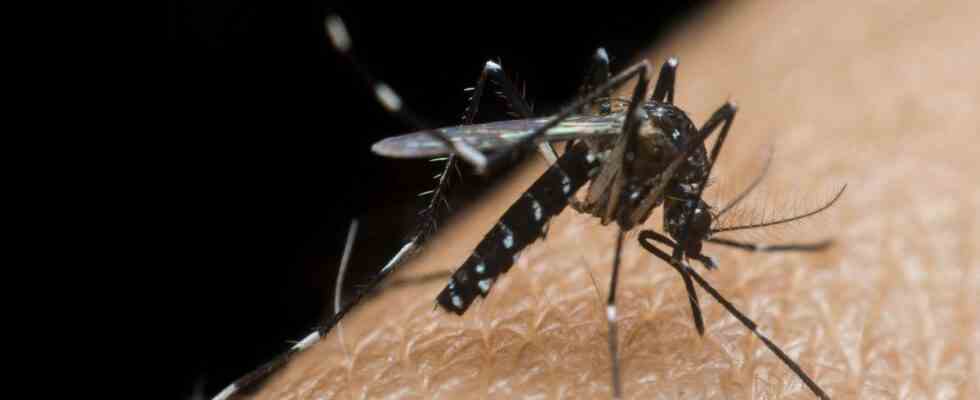After a summer marked by heat waves, drought and fires, global warming is now on everyone’s mind. It could now also slip into our bodies. Anna-Bella Failloux, specialist in mosquito-related diseases at the Institut Pasteur, explains that we can expect an increase in viruses that were classically “exotic”.
“The tiger mosquitoes are still present, but they should no longer be there at this time of year”, explains the researcher, who specifies that this “vector” transmits diseases such as dengue fever. However, “we have identified more than 60 cases of ‘indigenous’ dengue fever: such a number had never happened”, explains Anna-Bella Failloux, who adds that such a number would have been “unimaginable a few years ago”. .
The Mosquito Planet
The month of October is exceptionally mild and promises to be the hottest ever recorded in France, after an already extreme summer. Temperatures are warming up, a more favorable climate for many viruses. “With climate change, more mosquitoes and therefore viruses are to be expected. Instead of having mosquitoes from the beginning of May, we will see them from April. And they will stay later after the end of the summer, ”explains the specialist in mosquito-related diseases.
Climate change is also affecting the spread of infectious diseases, confirms a report by Lancet Countdown, an annual study conducted by 99 experts from 51 institutions. The window of opportunity for malaria transmission has increased by almost a third (32.1%) in parts of the Americas and by 14% in Africa over the past decade, compared to the period 1951-1960. Globally, the risk of dengue fever transmission increased by 12% over the period, the report said.
Insecticide-resistant tiger mosquitoes
There is a vaccine against dengue fever, produced by the Sanofi laboratory, but its effectiveness is too insufficient to recommend it to people who have never caught dengue fever. The fight against the disease begins with the environment, starting with mosquitoes spreading the virus. The “mosquito control” operations thus aim to identify and destroy the foci of larvae.
But “tiger mosquitoes are resistant to the insecticides we use,” says Anna-Bella Failloux. “We are testing different methods to eradicate it. One of them consists in introducing into nature mosquitoes infected with a bacterium blocking the circulation of the virus. We do it today in New Caledonia and Polynesia,” she explains. Still, this disease which kills between 30,000 and 50,000 people a year in the world could become more deadly as its hunting ground expands.

